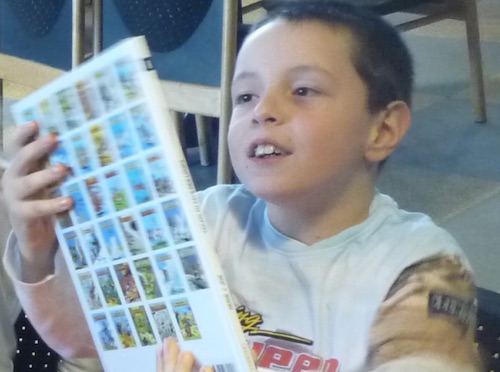
by Katie Harwood, Haut-Lac International Bilingual School
As the weeks stretch on and we adapt to our live under COVID-19 isolation rules, children might be beginning to ask more questions about the situation – Why can’t we go back to school normally? When will this be over?
It is entirely normal that they show some apprehension as isolation continues. So how can parents talk to their children about this in a way that comforts them and addresses their questions fairly?
Ask them how they’re doing every once in a while
Sit your child down and talk them through what’s going on, to see how much they know and understand of the situation. By asking the simple question ‘how are you doing’, you are giving your child the chance to say as little or as much as they would like. You do not need to delve deeply into it if your child doesn’t want to, but you are letting them know you’re there and showing them that the door is open should they need it.
Listen and respect their emotions
It might seem like telling a child that everything is fine will be enough to bring them peace. However, that could stop them from digging deeper and explaining how they are really feeling. Instead, listen to everything they have to say and tell them that it’s okay, even normal, to have these feelings. They will come and go like trains into a station, but you will be there for them to talk about it whenever they need to.
Avoid exposing them to too much of the news, but don’t deny anything
The news is a steady cycle of figures and statistics, and constant exposure to it can be anxiety-inducing for anybody. If your child wants to be updated on the situation, don’t hide anything from them. However, there is also no need to play the news in a constant stream in the background.
Mitigate your own response
Children are very sensitive and intuitive. If you are particularly anxious or affected by what is happening (which is entirely understandable), try to maintain a calm outward demeanour around children or they might adopt and reflect your emotions.
Plan some fun activities together
Spend time doing some calm but fun bonding activities together, like cooking, reading or crafting. Normal activities will be a welcome distraction for the whole family from any anxious thoughts and will help to establish a sense of normalcy. It is also an opportune moment to talk and create a space for your child to say what is on their mind, without putting the focus entirely on them.
Think positively
If your child is worried for their own health or that of their friends and family, encourage them with positive affirmations. Let them know that you would get support if you needed it, and that our hospital services are very good. Ask them to think positively for their loved ones, an action which will help the child as much as those for whom they are worried.
Show them that they can take care of themselves
A way to boost their confidence is to give children their own power. Show them that they can protect themselves by proper hand washing, how to cough/sneeze into their elbow...

Inevitably, every child is different and will respond in their own way to these extraordinary times. However, as their parent, you are the one best primed to bring them reassurance and support simply by your presence and showing them love. So keep doing what you’re doing and you’ll be on the right track!
Author bio
 Katie Harwood is a member of the communications team at Haut-Lac International Bilingual School in Switzerland, as well as oversees the school's blog which covers all things education and child development. She is always on the lookout for interesting, new angles and future trends in the sector.
Katie Harwood is a member of the communications team at Haut-Lac International Bilingual School in Switzerland, as well as oversees the school's blog which covers all things education and child development. She is always on the lookout for interesting, new angles and future trends in the sector.
Not only is Katie now working at Haut-Lac, but thanks the school for her bilingualism where she loved growing up amongst a thriving and lively international community as a student. She is herself is a half Swiss and half Irish.
She followed this by undertaking an English and Creative Writing BA at the University of Warwick in England, before returning to make the best use of her skills in the school where she grew up, given her strong advocacy of international education.






